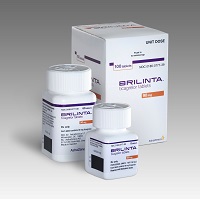 |
Soon after CEO Pascal Soriot took over at AstraZeneca ($AZN) in 2012, he declared Brilinta to be a big opportunity for growth. That was a surprise, given the blood thinner's laggardly sales since its 2011 launch. But Soriot put cash on the table to back up his hunch, with plans for big outcomes studies, stepped-up advertising, and an expanded cadre of sales reps.
Now, the second of those studies has come back positive. The Pegasus study, which followed 21,000 patients who'd had heart attacks, found that long-term use of Brilinta plus aspirin helped prevent additional heart attacks, strokes, and cardiovascular death--and did so better than long-term aspirin plus placebo.
Detailed study data isn't yet available. But in general terms, the idea is to use Pegasus to back up an FDA application for broader use of Brilinta, expanding the number of cardiovascular patients eligible for the anti-platelet drug and extending the length of time they'd use it after a heart attack. And in even more general terms, the data simply backs up AstraZeneca's contention that Brilinta is useful for patients with acute coronary syndrome.
"Bottom line, it's fantastic to have this," Paul Hudson, AstraZeneca's U.S. President, told FiercePharma Wednesday. "It's a confirmation that the confidence we have in Brilinta is justified."
Sales and prescription stats are starting to confirm that confidence, too, Hudson said. Through the third quarter of last year, Brilinta sales were up 100%. And since then, Brilinta has climbed to the number one spot among branded anti platelet drugs used in hospitals. It's also now the best performer in the category when it comes to new patient starts.
In the short term, the top-line Pegasus results could help persuade more cardiologists to be confident in Brilinta, too. That might help boost market penetration even ahead of a new FDA-approved indication, CEO Pascal Soriot said at the JP Morgan Healthcare Conference Wednesday. Longer-term, an FDA approval based on Pegasus would expand Brilinta's footprint significantly.
"If you keep patients on the drug for three years instead of one, the math is pretty obvious," Eric Le Berrigaud, an analyst at Bryan Garnier & Co. in Paris, told Bloomberg. "It could potentially change the paradigm of treatment."
AstraZeneca is shooting to have Pegasus presented at the American College of Cardiology meeting in March, and to start talking to the FDA soon after that, Hudson said. That's a quick turnaround, however, so it may have to wait for a later medical meeting. The American Heart Association in November, for instance.
- see the Bloomberg story
- and here's the release
Special Reports: Top 10 pharma companies by 2013 revenue - AstraZeneca | Top 10 Drug Launch Disasters - Brilinta